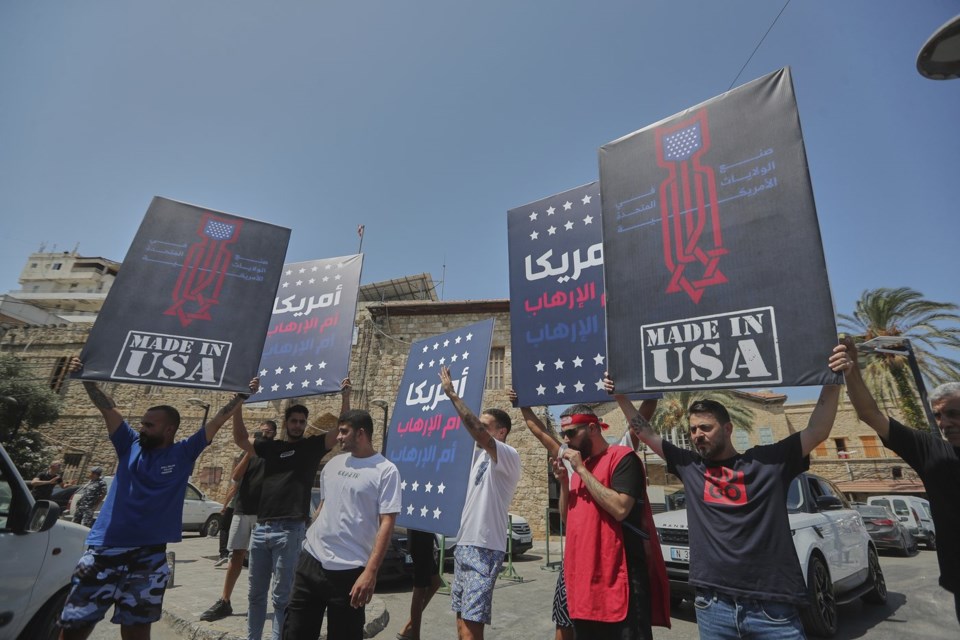Top Stories
UN Security Council Votes to End Lebanon Peacekeeping Force

The United Nations Security Council has voted unanimously to end the peacekeeping force in southern Lebanon after nearly five decades. This decision, announced on Thursday, comes following pressure from the United States and its ally, Israel. The resolution establishes a timeline for the withdrawal of the United Nations Interim Force in Lebanon (UNIFIL), which has been stationed in the region since its creation in 1978.
The U.S. initially sought the withdrawal to occur within six months but later agreed to a final 16-month mandate, extending the mission until December 31, 2026. This extension allows UNIFIL to continue monitoring the area along the U.N.-drawn border, known as the Blue Line, which separates Lebanon from Israel. The peacekeeping force, comprising approximately 10,800 military and civilian personnel, has played a crucial role in maintaining security in southern Lebanon, particularly during the tensions surrounding the Israel-Hezbollah conflict.
Despite its longstanding presence, UNIFIL has faced criticism from various factions. U.S. lawmakers, many aligned with the Trump administration, view the operation as ineffective and costly. They advocate for a complete withdrawal, arguing that it hinders efforts to diminish Hezbollah’s influence and restore security to the Lebanese armed forces.
Edith M. Lederer of the Associated Press reports that during the upcoming one-year withdrawal period, UNIFIL is authorized to assist U.N. personnel and maintain situational awareness around its locations. The resolution also emphasizes the need for the Lebanese government to become the “sole provider of security” in the region. Furthermore, it urges Israel to withdraw its forces from north of the Blue Line.
The decision to terminate the peacekeeping force has sparked concern among European nations, particularly France and Italy. These countries have expressed reservations about the rapid winding down of UNIFIL, arguing that it could create a security vacuum that Hezbollah may exploit. They contend that a phased approach is necessary to ensure the Lebanese army can adequately secure the border.
The resolution additionally calls upon the international community to enhance support for the Lebanese armed forces through equipment, financial aid, and other resources. This appeal reflects the understanding that the Lebanese military currently lacks the capacity to assume full control of the region.
As the UN prepares for this significant shift in peacekeeping strategy, the implications for regional stability and security remain a pressing concern for both local and international stakeholders.
-

 Science2 months ago
Science2 months agoToyoake City Proposes Daily Two-Hour Smartphone Use Limit
-

 Health2 months ago
Health2 months agoB.C. Review Reveals Urgent Need for Rare-Disease Drug Reforms
-

 Top Stories2 months ago
Top Stories2 months agoPedestrian Fatally Injured in Esquimalt Collision on August 14
-

 Technology2 months ago
Technology2 months agoDark Adventure Game “Bye Sweet Carole” Set for October Release
-

 World2 months ago
World2 months agoJimmy Lai’s Defense Challenges Charges Under National Security Law
-

 Technology2 months ago
Technology2 months agoKonami Revives Iconic Metal Gear Solid Delta Ahead of Release
-

 Technology2 months ago
Technology2 months agoSnapmaker U1 Color 3D Printer Redefines Speed and Sustainability
-

 Technology2 months ago
Technology2 months agoAION Folding Knife: Redefining EDC Design with Premium Materials
-

 Technology2 months ago
Technology2 months agoSolve Today’s Wordle Challenge: Hints and Answer for August 19
-

 Business2 months ago
Business2 months agoGordon Murray Automotive Unveils S1 LM and Le Mans GTR at Monterey
-

 Lifestyle2 months ago
Lifestyle2 months agoVictoria’s Pop-Up Shop Shines Light on B.C.’s Wolf Cull
-

 Technology2 months ago
Technology2 months agoApple Expands Self-Service Repair Program to Canada









